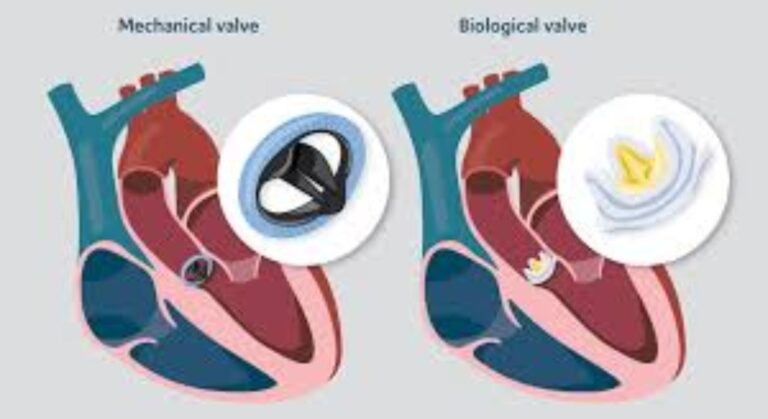Heart health is one of the most critical aspects of overall well-being. When heart valves become damaged or diseased, they can compromise blood flow and lead to serious complications. One such condition involves the aortic valve, which controls blood flow from the heart into the rest of the body. In severe cases, aortic valve replacement surgery becomes necessary to restore proper heart function. For patients exploring treatment options, especially those in South Asia, understanding the aortic valve replacement surgery cost in India is often a key consideration due to affordability and access to quality care. But beyond cost, it’s essential to be fully informed about the procedure, associated risks, recovery expectations, and potential outcomes.
What Is Aortic Valve Replacement Surgery?
Aortic valve replacement surgery is a procedure to replace a malfunctioning aortic valve—typically due to aortic stenosis (narrowing of the valve) or aortic regurgitation (leakage of the valve). When the valve does not function properly, the heart must work harder to pump blood, which can lead to fatigue, shortness of breath, chest pain, or even heart failure.
The faulty valve can be replaced with:
- A mechanical valve (made from durable materials, requiring lifelong blood thinners)
- A biological valve (from animal or human tissue, with a more natural function but limited lifespan)
There are two primary surgical approaches:
- Open-Heart Surgery – A traditional method involving a large chest incision and heart-lung bypass machine.
- Transcatheter Aortic Valve Replacement (TAVR) – A minimally invasive technique for patients at high surgical risk.
Who Needs Aortic Valve Replacement?
This surgery is typically recommended for:
- Severe aortic stenosis with symptoms
- Significant valve regurgitation causing heart strain
- Congenital valve defects
- Endocarditis (infection of the valve)
Doctors usually confirm the need for surgery through diagnostic tools like echocardiograms, CT scans, and cardiac catheterization.
Risks and Complications
Like all major surgeries, aortic valve replacement carries certain risks. While many patients experience positive outcomes, it’s important to understand potential complications, such as:
- Infection at the incision site or in the heart (endocarditis)
- Bleeding during or after the surgery
- Blood clots, which may lead to stroke
- Valve failure or complications with the prosthetic valve
- Irregular heart rhythms (arrhythmias)
- Reactions to anesthesia
The risk level varies based on the patient’s age, overall health, and type of surgery performed. Minimally invasive procedures like TAVR generally involve fewer complications and faster recovery times for certain candidates.
The Recovery Process
Recovery from aortic valve replacement depends on the surgical approach and individual health factors. Here’s a general recovery timeline:
Hospital Stay
- Open surgery: 5–7 days
- TAVR: 2–3 days
Initial Recovery (Weeks 1–4)
- Fatigue and weakness are common.
- Pain or discomfort around the incision area gradually improves.
- Patients are encouraged to walk and perform light activities to improve circulation.
Cardiac Rehabilitation (Weeks 4–12)
- A supervised program helps patients regain strength, manage stress, and prevent future heart problems.
Full Recovery
- Open surgery: Usually takes 2–3 months
- TAVR: Often within 2–4 weeks
Patients should follow their cardiologist’s guidance, take medications as prescribed, and attend all follow-up appointments.
Long-Term Results and Outcomes
Aortic valve replacement surgery significantly improves quality of life for most patients. Common long-term benefits include:
- Improved energy and exercise capacity
- Relief from symptoms like chest pain and breathlessness
- Reduced risk of heart failure
- Extended life expectancy, especially when performed early in the disease progression
Mechanical valves can last 20 years or more, while biological valves may need to be replaced after 10–15 years. Your surgeon will recommend the best option based on your age, lifestyle, and medical history.
Living After Aortic Valve Replacement
Post-surgery, lifestyle changes are critical to protecting your heart health:
- Maintain a heart-healthy diet
- Exercise regularly under medical supervision
- Quit smoking and limit alcohol
- Monitor blood pressure and cholesterol
- Take medications consistently (especially blood thinners if you have a mechanical valve)
Regular checkups and echocardiograms are vital for monitoring valve function and detecting any early signs of complications.
Final Thoughts
Aortic valve replacement surgery is a life-changing—and often life-saving—procedure. With modern surgical techniques and experienced medical professionals, outcomes are increasingly successful and long-lasting. While concerns like the aortic valve replacement surgery cost in India are understandable, they should be weighed alongside the benefits of improved health, longer life, and a better quality of life.
If you or a loved one has been diagnosed with aortic valve disease, speak with a cardiologist to explore your treatment options and determine the right time for surgery. With the right care and guidance, recovery and a healthy future are well within reach.
To read more free article ( Click Here )



